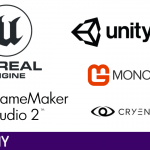Independent video game development long constituted a singular beacon of creativity. It permits small teams, or individual developers, craft truly unique gaming experiences. The recent emergence of artificial intelligence (AI) marks a tremendously deep shift. From optimizing work processes to enhancing creative possibilities, AI intensely redraws the Future of Indie Game Development.
The sector grows unstoppably worldwide. On a national scale, here in Spain, it harvests spectacular year-after-year increases. In 2023, Spain’s video game industry increased its total turnover approximately sixteen point three percent compared to 2022, reaching two thousand three hundred thirty-nine million euros, a figure reported in the AEVI 2023 Yearbook. Several indie projects receive considerable support; for example, “The Well’s Blessing” and “Alphinlandia” gained backing from initiatives like Gameplay, highlighting specialized support value and festival opportunities for visibility and connection among inspiring projects, as indie game experts analyze at UPF. This data underscores a solid foundation and an increasingly fertile environment for technology-driven independent innovation.
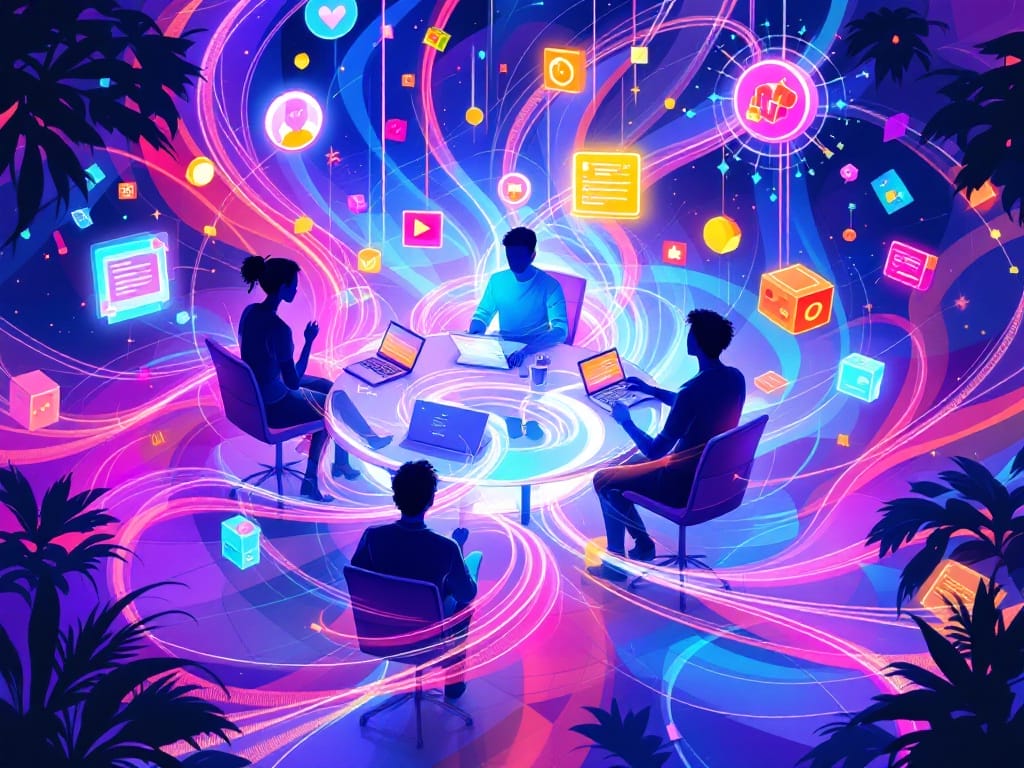
AI Transforms Indie Game Creation
Artificial intelligence does not constitute a complete novelty for video game development. It comprised an integral part since Pong’s initial days. Its recent evolution, however, allows for significantly more sophisticated experiences. Today, developers actively apply AI for extensive improvement across numerous aspects.
Streamlining Workflows Considerably
One most direct impacts we sense involves repetitive task optimization. Procedural content generation, for instance, lets AI automatically create vast worlds, detailed landscapes, or complex levels. This reduces design time quite a bit, allowing designers focus on other vital creative elements.
CONSIDER THE POSSIBILITIES!
How many hours does an indie artist spend creating textures? Far too many!
Certainly. Tools featuring AI capabilities generate high-quality textures or materials simply based upon provided specifications. This significantly accelerates the design process, enormously reducing manual intervention necessity. Platforms like Leonardo.ai or Meshy AI, both excellent generators for game assets, greatly assist this work according to Wondershare’s article on tools. They can produce high-quality visual assets for your projects.
Intensely Boosting Creative Possibilities
AI not just accelerates; it also expands creative boundaries tremendously. Non-playable characters (NPCs) evolve significantly due to this technology. More human-like behaviors, real-time reactions based on player actions, and complex interactions become quite feasible. This adds considerable depth both to stories and game mechanics. Frame Games explains how AI transforms the industry including more realistic NPCs.
IMAGINE NPCs CAPABLE OF GENUINE SURPRISE!
Absolutely possible.
AI lets games dynamically adjust difficulty, ensuring every player faces a challenge level matching their skills. This prevents excessive frustration among less experienced players, also boredom among veterans. This adaptability leads toward greater engagement, certainly longer gaming sessions. Real-time adaptation improves experience according to Globant.
Interactive narratives improve notably. Players influence stories in a completely organic way. Titles like Detroit: Become Human demonstrate how each decision holds a real, noticeable impact upon the main plot development, a key point in AI’s evolution within video games.
Evolving environments represent another area deeply impacted. Game worlds react to player actions, changing dynamically. It allows for incredibly immersive experiences.
Significantly Improving Operational Efficiency
Performance optimization constitutes a clear additional benefit. AI automatically adjusts game settings. This ensures a fluid experience across different capability devices. It improves performance guaranteeing game enjoyment without annoying interruptions.
AI-driven testing proves particularly valuable. Automation of testing processes, quickly identifying or addressing bugs or balance issues, tremendously accelerates development cycles. It notably improves game quality. Hiberus explores this new era of automation with AI in QA and Testing. Globant also mentions AI-driven testing as a benefit.

Key AI Tools for Indie Developers
A wide variety of AI tools emerge. They facilitate various stages of indie game development. Many offer accessible free tiers for small teams or solo creators, as detailed in a guide on becoming an indie developer.
Tools for Assets and Visual Art
Creating art or assets proves costly. For indie developers, this involves investing precious time or limited financial resources. Generative AI tools change this landscape.
Leonardo.ai makes a brilliant generator. You can use it for producing high-quality assets for your artistic projects. It possesses an easy interface. You clearly see all functions. You enjoy a more artistic experience lacking unnecessary complications.
Meshy AI presents another notable generator. Many gaming platforms trust it completely. Built by AI, it employs generative algorithms for creating diverse assets.
Scenario also helps tremendously. It designs any piece necessary for the game according to Tabletop Creator. Maps, environments, buildings, props, weapons, vehicles, clothing, or avatars. You train this AI by providing specific style reference images. You get all sorts of resources.
Easy-Peasy.AI offers an AI game asset generator. It lets you design custom assets instantly. It creates characters, objects, textures, and specific environments for your development projects. You simply supply keywords. It lets AI do the rest. A YouTube video explores free AI sprite and asset creation.
Tools for Writing and Design
AI assists in narrative aspects too. Tools like ChatGPT or similar models function as linguistic models. You use them for generating ideas, character descriptions, objects, and scenarios. They simulate conversations and interactions involving players. They provide vital creative, contextual, and language elements. Tabletop Creator mentions this.
Inworld AI focuses on creating realistic characters. Gifted with unique personalities, memories, and even complex emotional behaviors per Tabletop Creator. Charisma.ai offers similar capabilities based on Wondershare. It allows building interactive narratives, interesting conversational characters.
Ludo.ai acts just like an AI-powered game studio. It offers boosted research and creativity, Wondershare points out. It helps you develop complete games. It includes a quite useful development resource package.
Tools for Programming and Logic
Although AI does not completely replace programmers, it offers valuable assistance. Models like ChatGPT, or even Google Gemini, help generating code snippets. They simplify specific mechanic implementation.
For those using engines like Unreal Engine with Blueprints (visual programming), AI guides step-by-step. It explains with character diagrams, much like a digital instruction manual. Amazing how AI turns into a potent tool. Someone with a good idea brings their project forward. Their lack of technical knowledge poses no hurdle as large as before. A YouTube video demonstrates AI creating games upon request.
TensorFlow comprises an open-source software library according to Tabletop Creator. It dedicates itself to machine learning. You build machine learning models for diverse tasks. Image recognition, natural language processing, voice recognition. A very powerful advanced tool.
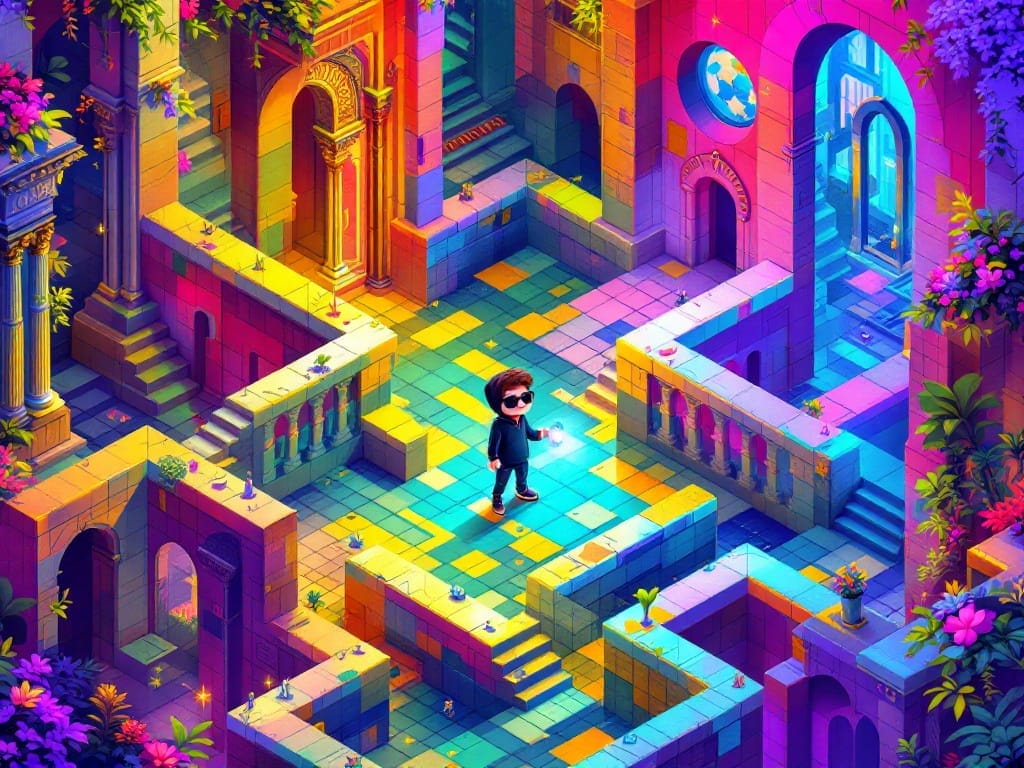
Current Trends and Relevant Success Stories
We see several inspiring examples illustrating how AI already makes a difference. Although some games use AI for discreet internal elements, others integrate it more visibly.
Cases not directly “about AI” but significant indie innovations:
- Papers Please: Showed simple mechanics, with complex moral choices, create deep experiences without cutting-edge graphics. It subtly leads players toward difficult decisions, as IDesigner analyzes.
- Darkest Dungeon: Its affliction system, where stress impacts characters, exemplifies early complex internal state simulation. Difficult decisions arise from these mechanics, IDesigner notes.
- Superhot: A shooter where time moves only alongside your movement. It puts pure strategic decisions front and center. Freshness within a saturated genre, IDesigner highlights.
More recently, concrete AI impact examples:
- More realistic NPCs reacting contextually. They add believability.
- Dynamic personalization adapts play to player style. Unique experiences emerge.
- Intelligent enemies learn player tactics. They offer constant adaptive challenge.
- Procedural generation creates endless fresh content. It guarantees replayability. Frame Games elaborates on these advancements.
A REAL AND SURPRISING EXAMPLE!
A simple game, made in 30 minutes using AI, generated its creator fifty thousand dollars per month. The fly.pieter.com case shows AI potential according to Xataka Móvil. It also underscores current limitations. AI already converts a textual or visual sketch into a playable interactive world.
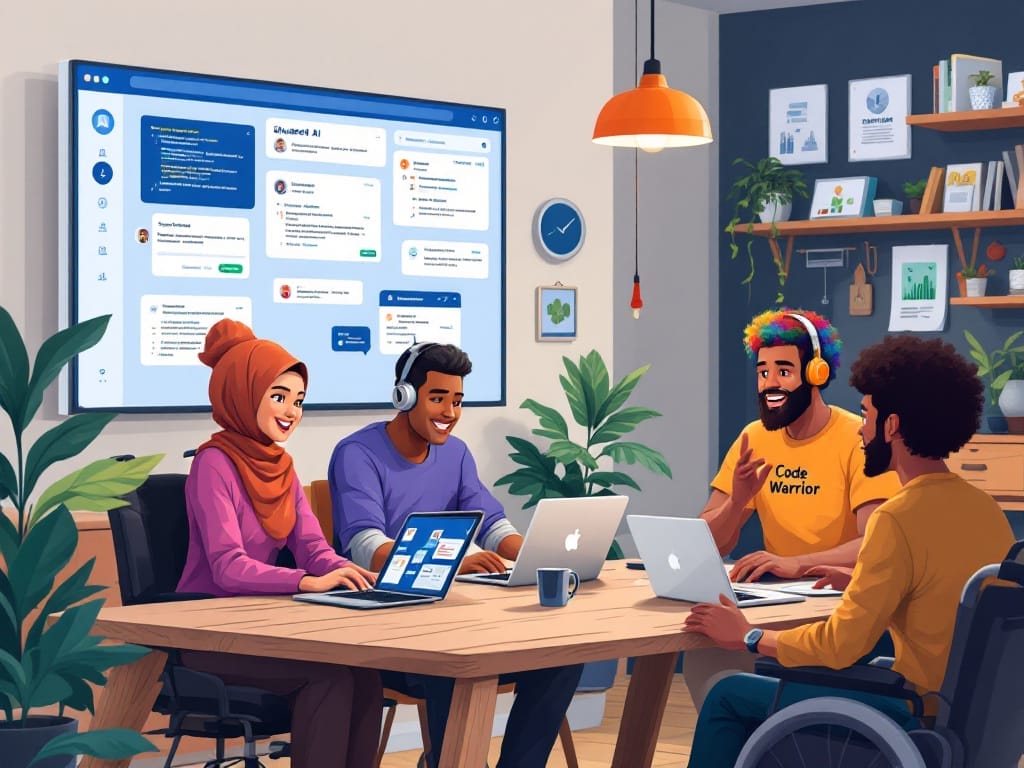
How AI Shapes Player Experience
Beyond development, AI redefines direct game interaction.
- Difficulty Adaptation: Adjusts challenge on the fly. Keeps players engaged. Prevents excessive frustration or boredom. Globant explains this benefit.
- Dynamic Content: Procedurally generated quests, random AI-driven events. Each playthrough feels distinct.
- AI Companions: NPC allies with complex, believable behaviors. They enhance immersion, game strategy.
- Player Analysis: AI analyzes player patterns. It provides valuable data for balancing game mechanics, designing future updates.
Responsible AI gains importance here. Ethical application of intelligent technologies. Ensuring AI systems operate transparently. Fair mechanics. Respectful toward player privacy or rights. It seeks enriching lives through safe, fair, enjoyable experiences. Globant addresses this topic in their article What is AI in Gaming?.
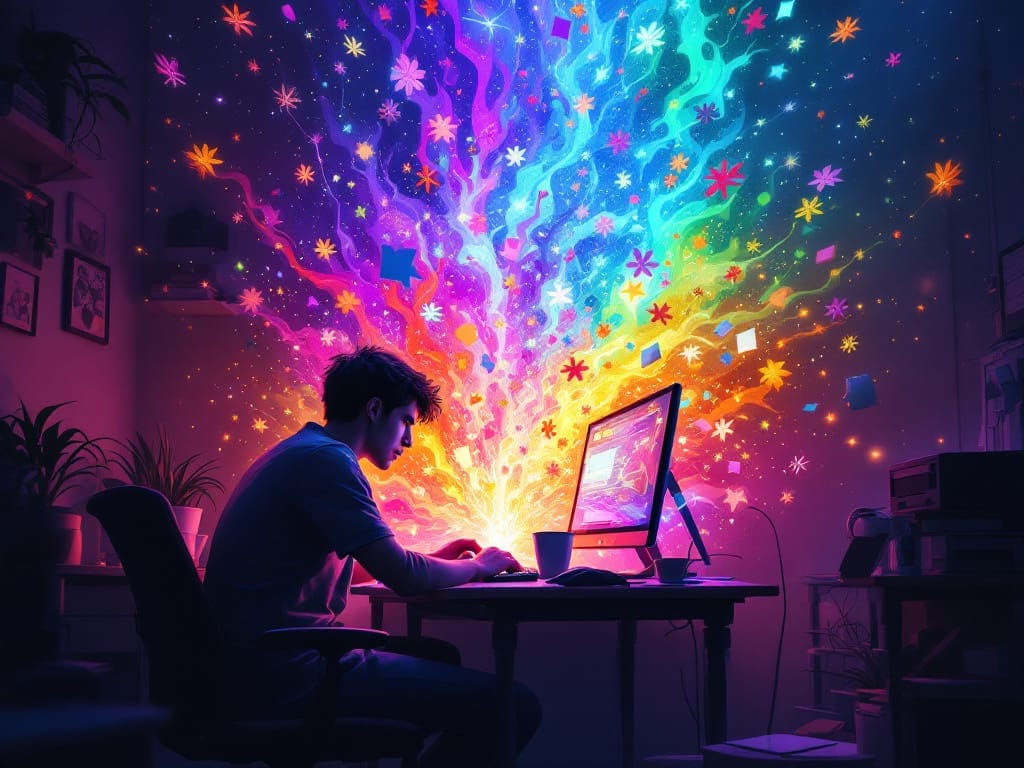
Challenges for Indie Developers Facing AI
Despite fantastic opportunities, AI integration presents obstacles. Indie developers face unique challenges.
Initial Cost and Accessibility Hurdles
Although many AI tools offer free tiers, access to more advanced or powerful models often involves costs. For studios with limited budgets, this poses a barrier. In contrast, AAA studios handle multi-million dollar budgets, a study on indie ecosystem challenges in Mexico notes.
However, trends point toward democratization. More free or low-cost tools appear continuously. This permits small studios, independent creators, experiment, a key point in AI’s evolution within video games according to Frame Games.
Ethical Considerations and Originality Concerns
Generative AI usage raises significant questions. Who owns copyright over AI-created assets? How ensure AI-generated content infringes no existing rights? Originality also causes concern. AI creations: truly novel, or just remixes of existing data?
Some experts suggest AI, though creating products quickly, will not genuinely innovate. It will only take ideas from what already exists. It cannot create, say, entirely new video game genres, a perspective mentioned in Expansión. This underscores human vision importance. AI complements human work, never replaces creators, a message from Frame Games.
The Necessary Learning Curve
Mastering AI tools requires time. It needs effort. Indie developers, often wearing multiple hats (design, programming, art, marketing), must add AI knowledge to their list. This represents a significant time investment. A scarce resource for them.
Fortunately, learning resources increase. Tutorials, online communities, vast documentation. They facilitate acquiring these new skills.

Looking Ahead: What Comes Next for Indies and AI?
AI integration into indie development seems inevitable. It will accelerate. We will see more sophisticated, intuitive, accessible tools. It will radically change how games get made.
Intensified Community and Collaboration
Online communities play a crucial part. Forums like Game Dev or TIG Forums offer technical support, shared experiences. Facebook groups dedicate to indie development, marketing, public relations, like those listed in a Reddit article. They facilitate connection, problem-solving.
Platforms like Develteam let users announce team searches. They facilitate project collaboration. These spaces become even more important. They permit developers share knowledge about AI tools. Solutions for common problems.
The Developer’s Evolving Role
The indie developer won’t disappear. Their role will shift. They will move from primarily a manual creator to a director or curator of AI systems. They will oversee AI tools. Guide generative processes. Integrate results coherently. Their artistic vision, their game design capability, will become more crucial than ever before.
AI automates the tedious parts. It frees up time focus on the creative spark. Narrative, innovative mechanic design, desired emotional experience.
THIS IS PURE ENERGY!
Proper combination of human creativity and AI technology will unleash immense potential. The possibilities are infinite. Time embrace this exciting revolution! A sentiment shared by Frame Games.
Vibrant Conclusion
The future of indie video game development looks incredibly promising. Artificial intelligence constitutes no threat. It signifies a powerful tool, an exceptional ally. It lets independent creators compete, innovate, reach new heights. Overcome past technical or resource barriers. Embrace AI intelligently. Explore its capabilities. It allows indie studios, solo creators, remain avant-garde. Continue delivering fresh, surprising, moving game experiences. This represents just the beginning of a fascinating era.
The game really just began!


![Buildbox Free - How To Make 2D Platformer Game [PART 1]](https://e928cfdc7rs.exactdn.com/info/uploads/sites/3/2020/01/Buildbox-Free-How-To-Make-2D-Platformer-Game-PART-150x150.jpg?strip=all&lossy=1&ssl=1)
